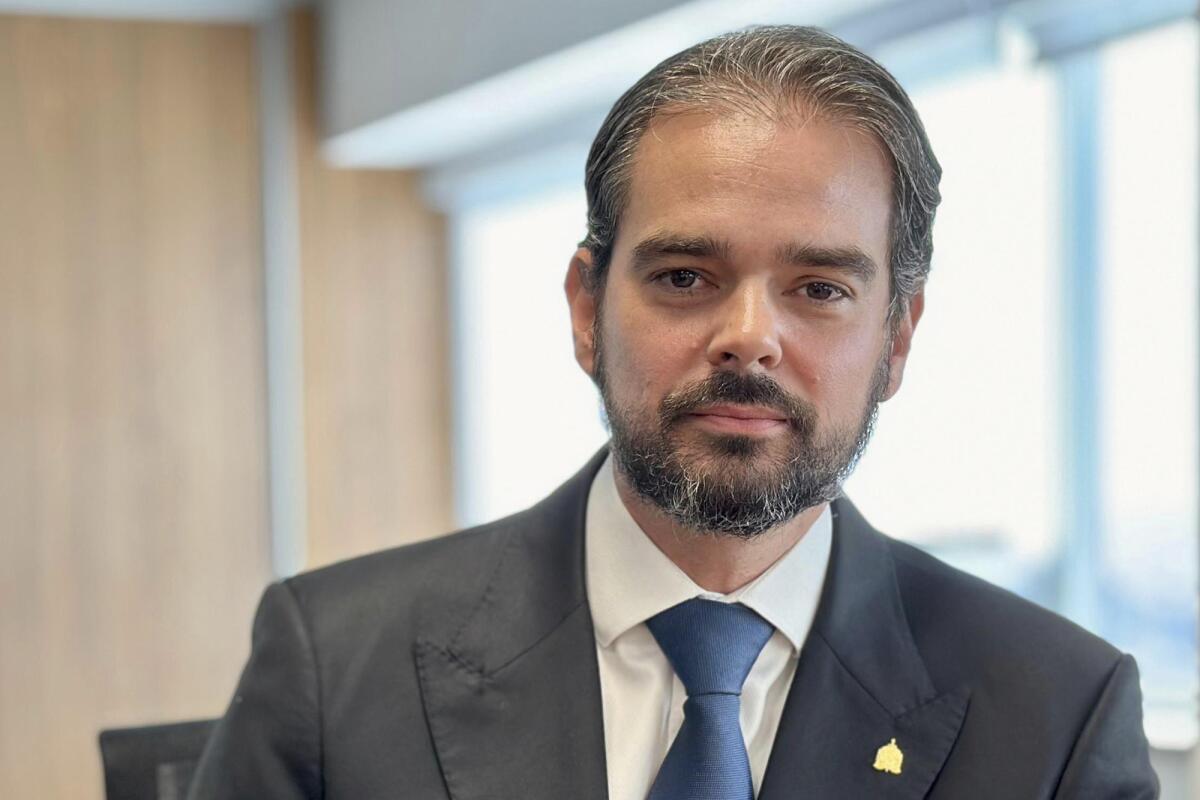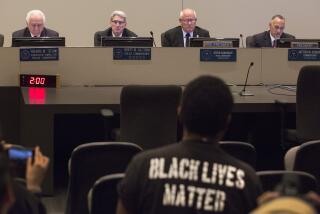Brazilian police official wins crucial backing to become the next head of Interpol

- Share via
LYON, France — Brazilian police official Valdecy Urquiza won a crucial vote of confidence Tuesday toward becoming the next head of Interpol — and its first leader from a developing country — after its executive committee selected the 43-year-old as its preferred candidate.
Urquiza, Interpol’s vice president for the Americas, is on track to be selected for the job by the Lyon, France-based organization’s general assembly in Glasgow, Scotland on Nov. 7. The assembly has always followed the recommendations for the choice of the secretary-general from the committee, which is currently made up of 13 members.
The Interpol secretary-general essentially runs the organization on a daily basis. Jürgen Stock of Germany, who has held the post since 2014, is not allowed under its rules to seek a third term.
The organization has never had a secretary-general who did not come from Europe or the United States.
Interpol, which has 196 member countries and celebrated its centennial last year, works to help national police forces communicate with each other and track suspects and criminals in fields like counterterrorism, financial crime, child pornography, cybercrime and organized crime.
Guatemalan pastor Hugh Gomez is one of thousands of immigrants targeted for deportation by ICE over the last decade based on Interpol “red notices.”
The world’s biggest — if not best-funded — police organization has been grappling with new challenges including a growing caseload of cybercrime and child sex abuse, and increasing divisions among its member countries.
Interpol had a total budget of about 176 million euros (about $188 million) last year, compared to more than 200 million euros at the European Union’s police agency, Europol, and some $11 billion at the FBI in the United States.
“Interpol already lacks the means to do its most basic work, so it’s going to be very limited in taking on new missions,” said Robert Schmidt, co-author of a French language book published last year whose title translates as “Interpol: The Investigation.”
“It has a role to play and its reputation is intact, but it’s true that a limited budget will necessarily constrain its capabilities,” he said.
Urquiza, who heads international cooperation for the Brazilian police force, holds degrees in law and public administration and is a graduate of the FBI National Academy in Quantico, Va.
The other finalists were Stephen Kavanagh of Britain, Interpol’s current executive director for police services; Mubita Nawa of Zambia, administrative director of the African country’s police service; and Faisal Shahkar of Pakistan, the head of the U.N. police division.
Urquiza and another board member, from Britain, recused themselves for the committee decision.
Keaten writes for the Associated Press.
More to Read
Sign up for Essential California
The most important California stories and recommendations in your inbox every morning.
You may occasionally receive promotional content from the Los Angeles Times.










